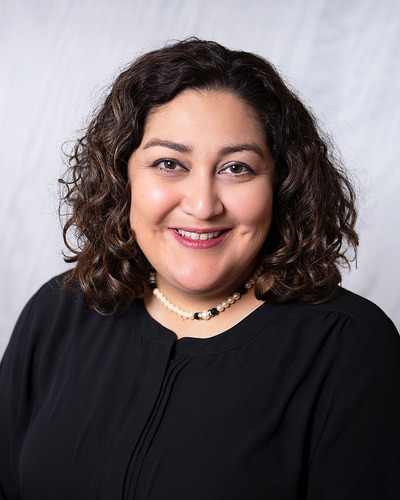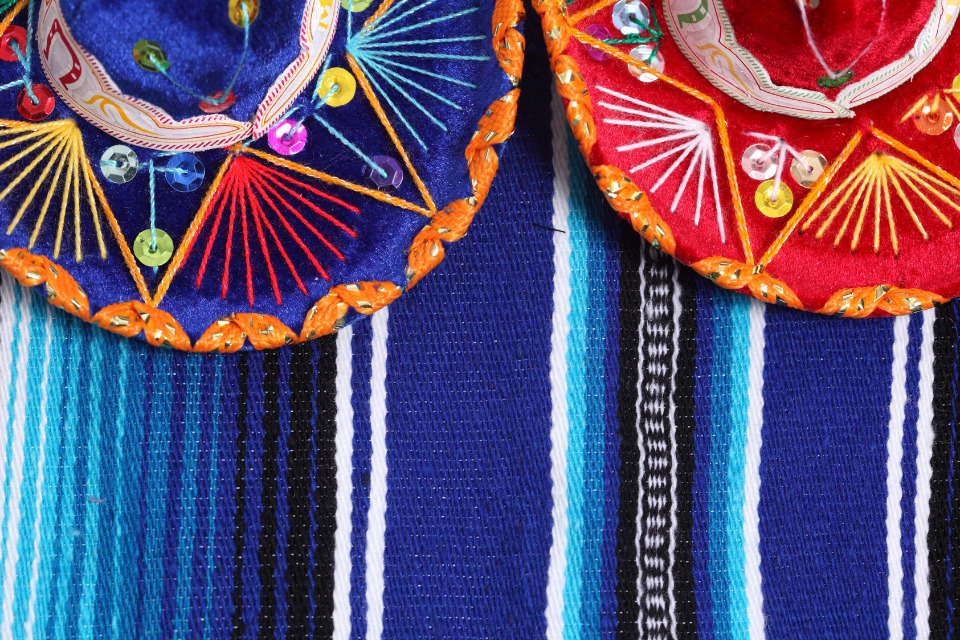Rev. Dr. Darryl Totty interviews April Gutierrez about her faith and how it’s rooted in the rich cultural heritage she is part of as a Mexican American.
DARRYL TOTTY
Superintendent, Greater Detroit District
“Preservation of one’s own culture does not require contempt or disrespect for other cultures.” — Cesar Chavez
Hispanic Heritage Month is celebrated from September 15 to October 15 each year. In the Greater Detroit District of The United Methodist Church, we acknowledge jubilantly the achievements and contributions of Hispanic American champions.

As we honor the lives of Hispanic Americans, it is essential to recognize their many cultures by hearing one voice. I decided to talk with theologian Rev. Dr. April Gutierrez to highlight and uplift Hispanic culture to be included and valued by the dominant culture. Dr. Gutierrez is the Associate Pastor of St. Paul’s United Methodist Church in Rochester, MI. She is also the co-convener of the Anti-Bias/Anti-Racism Working Group for the Michigan Conference.
As you read this blog, take a moment to reflect on what heritage means to you and how you work to be inclusive in your day-to-day life.
Question: What keeps you spiritually grounded, and why is it important to strive for beloved community according to Latino culture? In what ways have you sought to lead The United Methodist Church in honoring Hispanic heritage at a time when there is so much division in the church and the world?
Response: A few years ago, I read this powerful poem by Robert Chao Romero that resonates so clearly with the possible intimacy found in relationship with God. The Brown Church Poem boldly states, “God calls me mija/mijo . . . I was raised in the bosom of Abuelita Theology.” One of the losses I grieved significantly when my father died in 2019 and then when my abuela (grandmother) died in 2021 was hearing them call me mija. The word “mija” is hard to translate as there is much packed into this word — beloved child, a term of endearment that gave me a sense of belonging, rooted me with my ancestors, and felt like a blessing. Being called mija, I was surrounded by their love and sent into the world with a blessing on my life to be great. As mija, I was sent to bless others as their pride and hope for the next generation. “God calls me mija” became my prayer and the catalyst for the new strategic plan I co-facilitated this year at St. Paul’s UMC, “Visioning a Place to Belong.” This strategic plan honors the longing in our community for a place not only to fit in but to belong with others.
Question: Spanish-speaking people have made significant contributions to America. How do you identify yourself within the Hispanic community, and why is Christianity important to you?
Response: Hispanic Heritage Month honors 33 countries and their contributions to the United States. There’s real multiplicity there within the people. I am Mexican American, and we use the term “mestizo” to honor this diversity as endearing and rich. The term honors the fact that there is a mix of indigenous and Spanish-speaking peoples within most of those cultures. The cultural makeup is rich because we’re a people of the in-between. Our Christianity is interwoven with our indigenous identity; our experience of the Great Spirit informs how we understand Jesus as our brother. Our culture gives us unique lenses. There are cultural touchstones that come from mestizaje (such as the Mexican proverb, “they tried to bury us but didn’t know we were seeds”), a tradition that is characterized by a people that struggle against oppression and harm and yet deeply know inexplicable hope.
Question: Religion and faith are important tenets of society. How have faith, culture, and tradition influenced Latinos?
Response: Within Latinx/o/a tradition, we have many religious stories of triumph over the powerful against incredible odds. Our Lady of Guadalupe is a story where people with no business speaking to authority can move the institutional church. Juan Diego exemplifies beauty and grace in his witness to God’s faithfulness. That is what our faith and hope are rooted in — being a people with inexplicable, irresponsible, and unreasonable hope. Our parents have pride in our very essence, believing that we will be great and do great things as their sacrifice and struggle are transformed into this hope they will realize in their children. To know a beloved child of a Latino is to know and see a person who is fueled by the love and hope of their ancestors: mija/o. This single word means that you are beloved, a miracle, a blessing. Our children are beloved and carry a burden of commitment to their ancestors.
Our journey through Hispanic Heritage Month is an excellent time for celebrating the unique heritage of Hispanic descendants who have influenced The United Methodist Church. I want to thank Dr. April Gutierrez for her voice and reflections.
“The Lord our God be with us, as he was with our ancestors; may he not leave us or abandon us, but incline our hearts to him, to walk in all his ways and to keep his commandments, his statutes, and his ordinances that he commanded our ancestors” (1 Kings 8:57-58, NRSVue).
Last Updated on October 3, 2023

